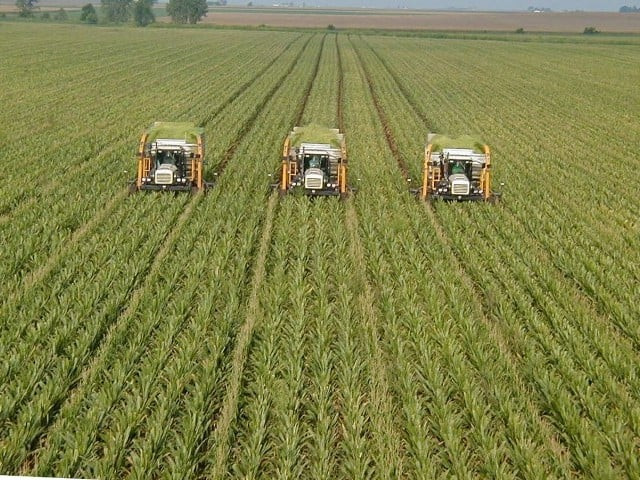Agricultural growth under Naya Pakistan
Leaders of the ruling PTI try to defend their underperformance, duly or unduly

PHOTO: FILE
Chapter five of the PTI’s manifesto calls for major reforms in the agriculture sector by unleashing Pakistan’s potential by reducing the cost of productions, introducing subsidy programmes, increasing access to credit with easy terms of repayment and sharing cost of investments required to improve productivity. The PTI has shown its ambition to boost agricultural output through initialising agricultural marketing system, improving storage facilities, deregulation of the seed market, and encouraging import of farm machinery by reducing import duties, upscaling value addition practices, and strengthening agricultural research extension services. Moreover, the livestock sector was to get a boost in meat and dairy production, and attaining self-sufficiency was envisioned. Similar ambitions were shown for poultry. Visualising the looming water scarcity in the country, efforts for water conservation and management were planned by increasing investments for the construction of large and small dams (e.g. Diamer-Bhasha Dam) besides improving water management, reducing aquifer abstraction by adopting water-smart irrigation practices and capping rainwater. The manifesto brought high hopes, even though it lacked the exact numbers and timelines to achieve the stipulated targets. Thus, it is difficult to scale it in mathematical terms against intangible targets.
PTI’s first-year performance report depicts nothing regarding the agriculture sector, maybe because it is a provincial subject. However, an amount of Rs309 billion was earmarked for agriculture but there are no signs of its utilisation so far. A major chunk of this funding will be spent over on-farm irrigation infrastructure, whereas benefiting the other sectors of agriculture out of this allocation is still ambiguous, although it has been planned that the livestock sector will be beefed up too. Despite ambitious claims by the PTI government, the agriculture sector’s growth remained at 0.85% during 2018-19, which is dismal as negative growth trends have been observed in all major crops, except wheat. It is worth mentioning here that the growth rate under the previous government remained 2.18 and 3.94% during FY 2016-17 and 2017-18, respectively.
This growth was achieved by the previous government due to its farmer-friendly policies. It offered attractive output prices, better credit availability, timely inputs provisions, tax reductions on inputs, and subsidies on fertilizers. The livestock, poultry and fisheries sub-sectors performed better too. The PML-N government provided sufficient support to the farming community and received a positive response.
Criticism is not taken as a positive gesture by the PTI government and leaders of the ruling party try to defend their underperformance, duly or unduly. A better strategy to avert criticism is to not give others an opportunity to bash you. But this necessitates right decisions at the right time. The present government should act immediately by providing realistic support to small and medium-scale farmers, by following in the policy footprints of their predecessor. The continuity of policies from the previous government is a key to success, and the farmers’ wellbeing should be the top priority while devising any policies for the agriculture sector. Prime Minister Imran Khan has taken a timely decision to look after the agriculture sector himself and he may do so by establishing a special task force of agriculture and agro-economic experts for assistance under his leadership.
Published in The Express Tribune, September 28th, 2019.
Like Opinion & Editorial on Facebook, follow @ETOpEd on Twitter to receive all updates on all our daily pieces.














COMMENTS
Comments are moderated and generally will be posted if they are on-topic and not abusive.
For more information, please see our Comments FAQ